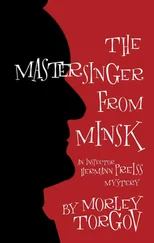Christopher Morley - Where the Blue Begins
Здесь есть возможность читать онлайн «Christopher Morley - Where the Blue Begins» весь текст электронной книги совершенно бесплатно (целиком полную версию без сокращений). В некоторых случаях можно слушать аудио, скачать через торрент в формате fb2 и присутствует краткое содержание. Жанр: Проза, на английском языке. Описание произведения, (предисловие) а так же отзывы посетителей доступны на портале библиотеки ЛибКат.
- Название:Where the Blue Begins
- Автор:
- Жанр:
- Год:неизвестен
- ISBN:нет данных
- Рейтинг книги:5 / 5. Голосов: 1
-
Избранное:Добавить в избранное
- Отзывы:
-
Ваша оценка:
- 100
- 1
- 2
- 3
- 4
- 5
Where the Blue Begins: краткое содержание, описание и аннотация
Предлагаем к чтению аннотацию, описание, краткое содержание или предисловие (зависит от того, что написал сам автор книги «Where the Blue Begins»). Если вы не нашли необходимую информацию о книге — напишите в комментариях, мы постараемся отыскать её.
Where the Blue Begins — читать онлайн бесплатно полную книгу (весь текст) целиком
Ниже представлен текст книги, разбитый по страницам. Система сохранения места последней прочитанной страницы, позволяет с удобством читать онлайн бесплатно книгу «Where the Blue Begins», без необходимости каждый раз заново искать на чём Вы остановились. Поставьте закладку, и сможете в любой момент перейти на страницу, на которой закончили чтение.
Интервал:
Закладка:
In a cupboard in the vestry-room he had found an old surplice hanging; he took it down, tried it on before the mirror, and wistfully put it back. To this symbolic vestment his mind returned as he sat solitary under the pine-trees, looking down upon the valley of home. It was the season of goldenrod and aster on the hillsides: a hot swooning silence lay upon the late afternoon. The weight and closeness of the air had struck even the insects dumb. Under the pines, generally so murmurous, there was something almost gruesome in the blank stillness: a suspension so absolute that the ears felt dull and sealed. He tried, involuntarily, to listen more clearly, to know if this uncanny hush were really so. There was a sense of being imprisoned, but only most delicately, in a spell, which some sudden cracking might disrupt.
The surplice tempted him strongly, for it suggested the sermon he felt impelled to deliver, against the Bishop's orders. For the beautiful chapel in the piny glade was, somehow, false: or, at any rate, false for him. The architect had made it a dainty poem in stone and polished wood, but somehow God had evaded the neat little trap. Moreover, the God his well-bred congregation worshipped, the old traditionally imagined snow-white St. Bernard with radiant jowls of tenderness, shining dewlaps of love; paternal, omnipotent, calm — this deity, though sublime in its way, was too plainly an extension of their own desires. His prominent parishioners — Mr. Dobermann-Pinscher, Mrs. Griffon, Mrs. Retriever; even the delightful Mr. Airedale himself — was it not likely that they esteemed a deity everlastingly forgiving because they themselves felt need of forgiveness? He had been deeply shocked by the docility with which they followed the codes of the service: even when he had committed his blunder of the contradictory prayers, they had murmured the words automatically, without protest. To the terrific solemnities of the Litany they had made the responses with prompt gabbling precision, and with a rapidity that frankly implied impatience to take the strain off their knees.
Somehow he felt that to account for a world of unutterable strangeness they had invented a God far too cheaply simple. His mood was certainly not one of ribald easy scoff. It was they (he assured himself) whose theology was essentially cynical; not he. He was a little weary of this just, charitable, consoling, hebdomadal God; this God who might be sufficiently honoured by a decorously memorized ritual. Yet was he too shallow? Was it not seemly that his fellows, bound on this dark, desperate venture of living, should console themselves with decent self-hypnosis?
No, he thought. No, it was not entirely seemly. If they pretended that their God was the highest thing knowable, then they must bring to His worship the highest possible powers of the mind. He had a strange yearning for a God less lazily conceived: a God perhaps inclement, awful, master of inscrutable principles. Yet was it desirable to shake his congregation's belief in their traditional divinity? He thought of them — so amiable, amusing, spirited and generous, but utterly untrained for abstract imaginative thought on any subject whatever. His own strange surmisings about deity would only shock and horrify them And after all, was it not exactly their simplicity that made them lovable? The great laws of truth would work their own destinies without assistance from him! Even if these pleasant creatures did not genuinely believe the rites they so politely observed (he knew they did not, for belief is an intellectual process of extraordinary range and depth), was it not socially useful that they should pretend to do so?
And yet — with another painful swing of the mind — was it necessary that Truth should be worshipped with the aid of such astonishingly transparent formalisms, hoaxes, and mummeries? Alas, it seemed that this was an old, old struggle that must be troublesomely fought out, again and again down the generations. Prophets were twice stoned — first in anger; then, after their death, with a handsome slab in the graveyard. But words uttered in sincerity (he thought) never fail of some response. Though he saw his fellows leashed with a heavy chain of ignorance, stupidity, passion, and weakness, yet he divined in life some inscrutable principle of honour and justice; some unreckonable essence of virtue too intimate to understand; some fumbling aspiration toward decency, some brave generosity of spirit, some cheerful fidelity to Beauty. He could not see how, in a world so obviously vast and uncouth beyond computation, they could find a puny, tidy, assumptive, scheduled worship so satisfying. But perhaps, since all Beauty was so staggering, it was better they should cherish it in small formal minims. Perhaps in this whole matter there was some lovely symbolism that he did not understand.
The soft brightness was already lifting into upper air, a mingled tissue of shadows lay along the valley. In the magical clarity of the evening light he suddenly felt (as one often does, by unaccountable planetary instinct) that there was a new moon. Turning, he saw it, a silver snipping daintily afloat; and not far away, an early star. He had found no creed in the prayer-book that accounted for the stars. Here at the bottom of an ocean of sky, we look aloft and see them thick-speckled — mere barnacles, perhaps, on the keel of some greater ship of space. He remembered how at home there had been a certain burning twinkle that peeped through the screen of the dogwood tree. As he moved on his porch, it seemed to flit to and fro, appearing and vanishing. He was often uncertain whether it was a firefly a few yards away, or a star the other side of Time. Possibly Truth was like that.
There was a light swift rustle behind him, and Miss Airedale appeared.
“Hullo!” she said. “I wondered where you were. Is this how you spend your afternoons, all alone?”
Stars, creeds, cosmologies, promptly receded into remote perspective and had to shift for themselves. It was true that Gissing had somewhat avoided her lately, for he feared her fascination. He wished nothing else to interfere with his search for what he had not yet found. Postpone the female problem to the last, was his theory: not because it was insoluble, but because the solution might prove to be less interesting than the problem itself. But side by side with her, she was irresistible. A skittish brightness shone in her eyes.
“Great news!” she exclaimed. “I've persuaded Papa to take us all down to Atlantic City for a couple of days.”
“Wonderful!” cried Gissing. “Do you know, I've never been to the seashore.”
“Don't worry,” she replied. “I won't let you see much of the ocean. We'll go to the Traymore, and spend the whole time dancing in the Submarine Grill.”
“But I must be back in time for the service on Sunday,” he said.
“We're going to leave first thing in the morning. We'll go in the car, and I'll drive. Will you sit with me in the front seat?”
“Watch me!” replied Gissing gallantly.
“Come on then, or you'll be late for dinner. I'll race you home!” And she was off like a flash.
But in spite of Miss Airedale's threat, at Atlantic City they both fell into a kind of dreamy reverie. The wine-like tingle of that salty air was a quiet drug. The apparently inexhaustible sunshine was sharpened with a faint sting of coming autumn. Gissing suddenly remembered that it was ages since he had simply let his mind run slack and allowed life to go by unstudied. Mr. and Mrs. Airedale occupied a suite high up in the terraced mass of the huge hotel; they wrapped themselves in rugs and basked on their private balcony. Gissing and the daughter were left to their own amusements. They bathed in the warm September surf; they strolled the Boardwalk up beyond the old Absecon light, where the green glimmer of water runs in under the promenade. They sat on the deck of the hotel — or rather Miss Airedale sat, while Gissing, courteously attentive, leaned over her steamer-chair. He stood so for hours, apparently in devoted chat; but in fact he was half in dream. The smooth flow of the little rolling shays just below had a soothing hypnotic erect. But it was the glorious polished blue of the sea-horizon that bounded all his thoughts. Even while Miss Airedale gazed archly up at him, and he was busy with cheerful conversation, he was conscious of that broad band of perfect colour, monotonous, comforting, thrilling. For the first time he realized the great rondure of the world. His mind went back to the section of the prayer-book that had always touched him most pointedly — the “Forms of Prayer to be Used at Sea.” In them he had found a note of sincere terror and humility. And now he viewed the sea for the first time in this setting of notable irony. The open dazzle of placid elements, obedient only to some cosmic calculus, lay as a serene curtain against which the quaint flamboyance of the Boardwalk was all the more amusing. The clear rim of sea curving off into space drew him with painful curiosity. Here at last was what he had needed. The proud waters went over his soul. Here indeed the blue began.
Читать дальшеИнтервал:
Закладка:
Похожие книги на «Where the Blue Begins»
Представляем Вашему вниманию похожие книги на «Where the Blue Begins» списком для выбора. Мы отобрали схожую по названию и смыслу литературу в надежде предоставить читателям больше вариантов отыскать новые, интересные, ещё непрочитанные произведения.
Обсуждение, отзывы о книге «Where the Blue Begins» и просто собственные мнения читателей. Оставьте ваши комментарии, напишите, что Вы думаете о произведении, его смысле или главных героях. Укажите что конкретно понравилось, а что нет, и почему Вы так считаете.










